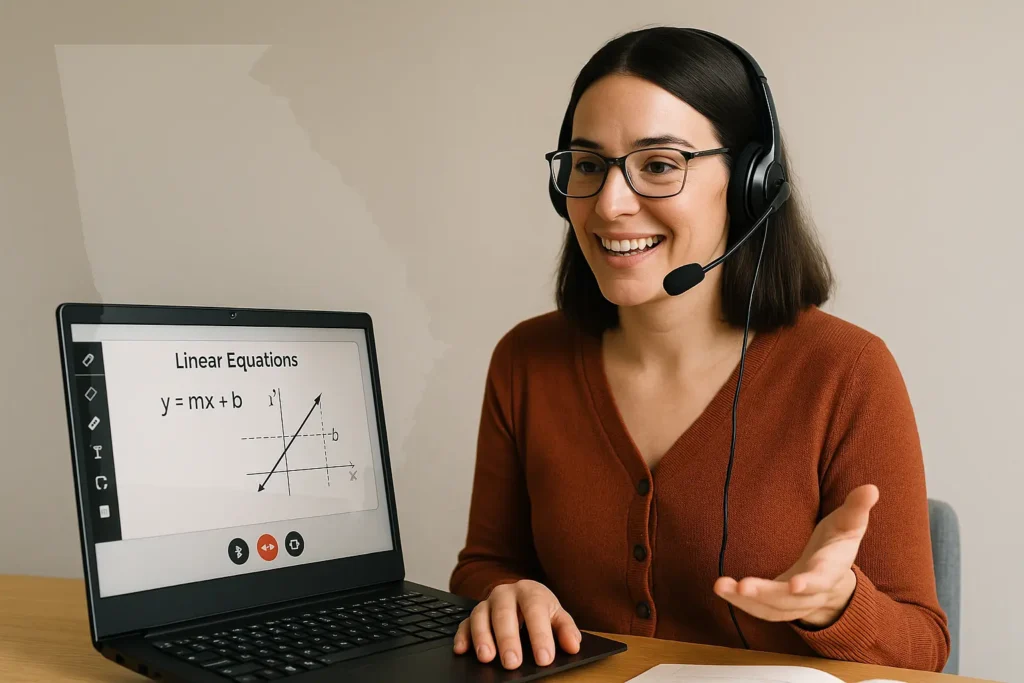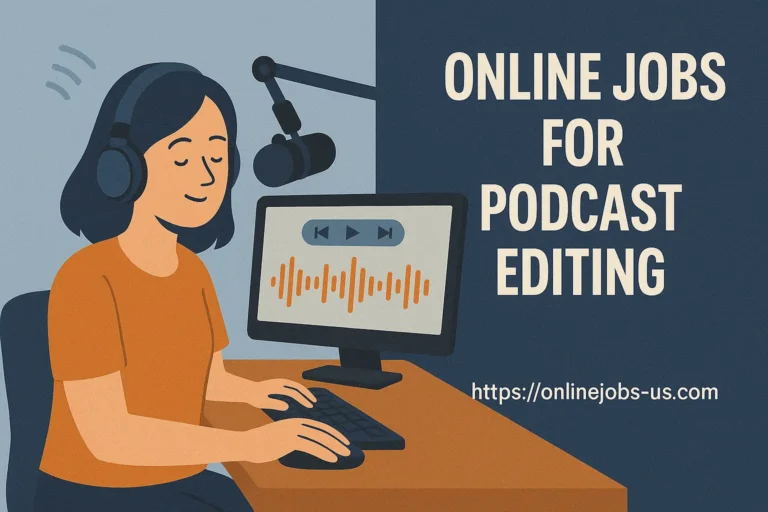Online Teaching Jobs In Georgia

Online Teaching Jobs in Georgia: A Friendly Guide for Aspiring Educators
In the heart of the South, Georgia is quickly becoming a hotspot for online education. With its blend of rural charm and urban growth, the Peach State offers plenty of opportunities for educators looking to teach from home. Whether you’re in Atlanta, Savannah, Macon, or tucked away in the Appalachian foothills, online teaching jobs in Georgia offer flexibility, purpose, and the ability to make a difference — all from your living room.
This localized guide covers everything you need to know about online teaching jobs in Georgia, including state-specific requirements, the best job platforms, and the types of teaching roles available (from K-12 to ESL). Plus, we’ll answer a couple of the most common questions to help you get started.
Why Online Teaching in Georgia?
The digital classroom has grown fast in Georgia, driven by both necessity and innovation. With school districts expanding virtual learning options and colleges adopting hybrid formats, there’s never been a better time to explore online education as a career.
Here’s what makes online teaching so attractive in Georgia:
- Flexible hours – Great for parents, retirees, or second-income seekers.
- Low cost of living – Your remote salary can go further here.
- State support for virtual learning – Especially since the COVID-19 shift.
- Opportunities from Atlanta to Albany – Geography doesn’t limit your job.
Types of Online Teaching Jobs in Georgia
Online teaching in Georgia isn’t one-size-fits-all. Depending on your background, you could find yourself instructing elementary kids, college students, or adults learning English.
1. K-12 Virtual Teachers
Georgia Virtual School (GaVS) and other public and private online schools are consistently hiring licensed teachers.
What you’ll do: Deliver full curriculums, grade work, meet virtually with students and parents, and use platforms like Canvas or Blackboard.
Where to find jobs:
- K12.com (Stride Learning)
- Georgia Virtual School
- Connections Academy
- TeachGeorgia.org – the state’s official education job board.
2. Online College Instructors
Georgia is home to many institutions with robust online programs, including:
- University of Georgia (UGA Online)
- Georgia State University
- Georgia Southern University
- Emory University Continuing Education
These schools regularly hire part-time adjuncts or online instructors in subjects ranging from Business to Healthcare to English Composition.
Where to find jobs:
- University System of Georgia Jobs
- HigherEdJobs.com
- LinkedIn and Indeed (search “remote professor” + “Georgia”)
3. ESL (English as a Second Language) Instructors
With growing immigrant communities in cities like Atlanta and Clarkston, ESL teachers are in demand both locally and globally.
You can teach:
- International students via platforms like VIPKid, Cambly, or Preply.
- Adults in Georgia through state-funded programs or non-profits.
What you’ll need:
- A TEFL, TESOL, or CELTA certification
- A strong grasp of American English grammar and conversation
- A stable internet connection and cheerful camera presence
Where to look:

Georgia-Specific Requirements and Certifications
Let’s talk logistics. Georgia has some unique certification rules you’ll want to know before applying for online teaching positions—especially for K-12 jobs.
For Public School Teachers:
- Georgia Teaching Certification through the Georgia Professional Standards Commission (GaPSC) is required.
- You can transfer a certification from another state through reciprocity.
- New teachers often start with a Pre-Service Certificate, and after passing required exams (GACE, ethics, content), move to an Induction Certificate.
For College-Level and ESL Teachers:
- Most colleges require at least a master’s degree in the teaching subject.
- ESL companies typically don’t require Georgia state certification but do require TEFL/TESOL certifications (many available online).
- If you’re teaching for a Georgia-based ESL program, a bachelor’s degree and teaching experience are usually sufficient.
Where to Find Online Teaching Jobs in Georgia
Job Boards
School & University Career Pages
- Georgia Virtual School
- University System of Georgia (USG)
- Technical College System of Georgia
Specialized Sites
- K12 (Stride Learning) – Remote K-12 roles across Georgia
- Connections Academy – Georgia Connections Academy has multiple statewide positions
- Outschool – Teach your own elective-style online classes to kids K-12
- Preply / VIPKid – ESL instruction with flexible scheduling
Georgia-Specific Perks of Online Teaching
Aside from flexible schedules and no traffic headaches, online teaching in Georgia has some unique bonuses:
- Affordable living: Whether you’re in Augusta or Valdosta, your dollar stretches further here than in many states.
- Community support: Georgia has a strong homeschool and virtual learning network.
- Year-round sunshine: No snow days mean more reliable teaching schedules.
- Cultural diversity: With a growing Hispanic and Asian population, ESL and bilingual instruction are in high demand.
2 Frequently Asked Questions (FAQs)
Q1: Can I teach online in Georgia without a teaching degree?
Yes — but it depends on the role. You’ll need certification to teach in public K-12 schools, but college-level adjuncts or ESL instructors often qualify with a bachelor’s degree and experience. Platforms like Outschool, Cambly, or Preply are open to non-certified but qualified educators.
Q2: What is the typical pay for online teaching jobs in Georgia?
Pay varies widely:
- K-12 public school online teachers: $45,000–$60,000/year
- Adjunct college professors: $2,000–$4,000 per course
- ESL platforms: $10–$25/hour
- Freelance courses (e.g., on Outschool): $30–$70/hour, depending on class size and subject.
Final Thoughts
Georgia is more than peaches and porch swings—it’s a state ripe with remote education opportunities. Whether you’re looking for a part-time side hustle or a full-time online teaching career, the Peach State has pathways for all kinds of educators.
So brew your sweet tea, power up your laptop, and start shaping minds—right from home.






